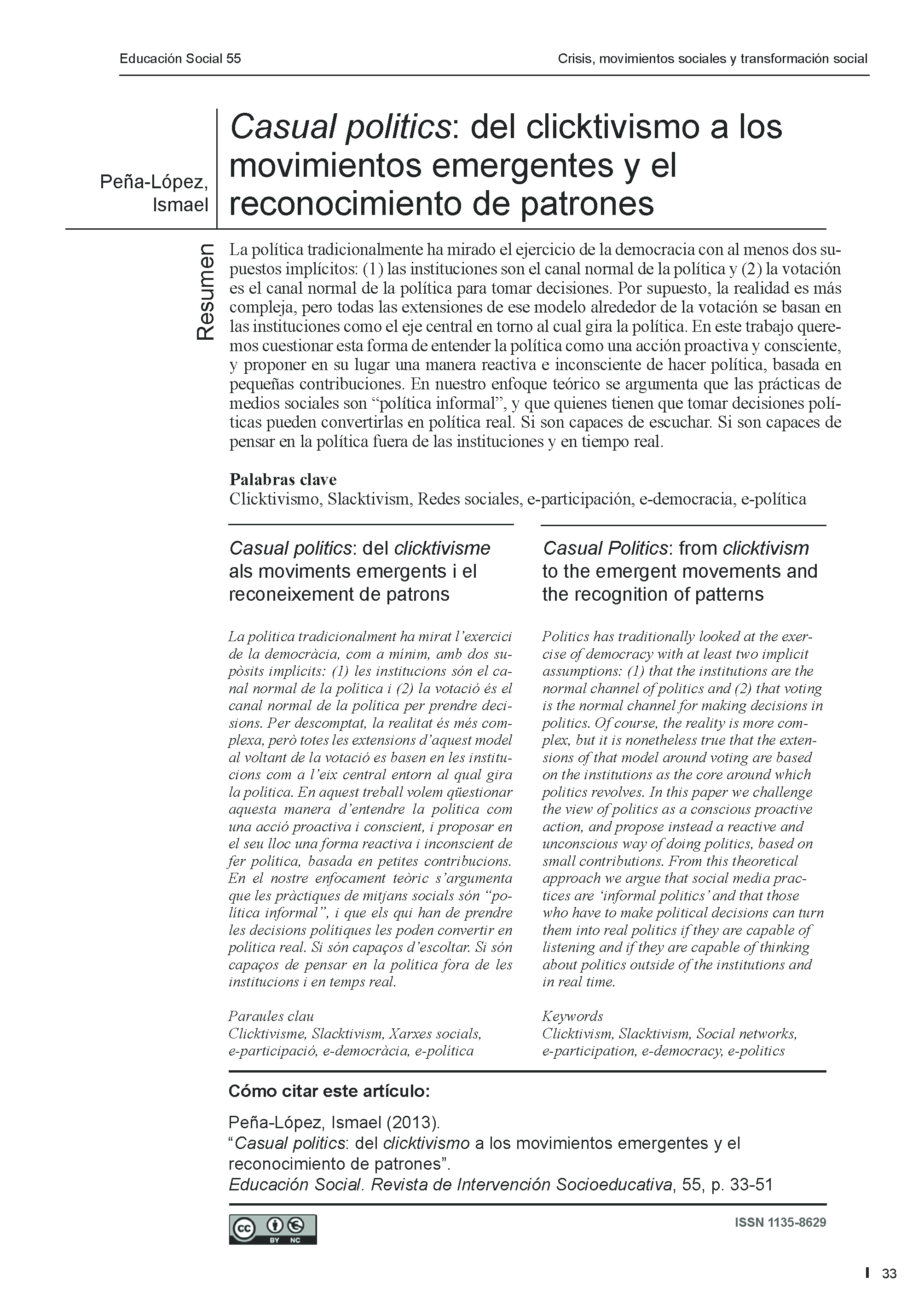
My research on slacktivism has finally been published as a paper both in Spanish and Catalan at two “brother” journals: Educación Social. Revista de Intervención Socioeducativa and Educació Social. Revista d’Intervenció Sòcioeducativa.
This is work that I had already presented at two conferences — 9th International Conference on Internet, Law & Politics; II Jornadas españolas de ciberpolítica — and, thus, is now available in three languages: the former two plus English.
What follows — after the abstract — is a list of the references and full text downloads for the papers. The main idea of the papers is that if we look at slacktivism from the point of view of the “activist”, it is but true that it is a very low-commitment activism. But if we take the approach of the politician or the policy-maker, or if we take some distance and take a look at the whole landscape, what we find is that slacktivism is only a tiny portion of a huge cosmos of people very actively engaging in politics, extra-representational politics though, and that is why most of it flies underneath the traditional political radar.
Abstract
Politics have traditionally looked at the exercise of democracy with at least two implicit assumptions: (1) institutions are the normal channel of politics and (2) voting is the normal channel for politics to make decisions. Of course, reality is much more complex than that, but, on the one hand, all the extensions of that model beyond or around voting –issues related to access to public information, to deliberation and argumentation, to negotiation and opinion shaping, or related to accountability are based on institutions as the core axis around which politics spin. On the other hand, the existence and analysis of extra-institutional political participation –awareness raising, lobbying, citizen movements, protests and demonstrations– have also most of the times been put in relationship with affecting the final outcomes of institutional participation and decision-making, especially in affecting voting.
Inspired in the concept of «feet voting» (developed by Tiebout, Friedman and others) in this paper we want to challenge this way of understanding politics as a proactive and conscious action, and propose instead a reactive and unconscious way of doing politics, based on small, casual contributions and its posterior analysis by means of big data, emergence analysis and pattern recognition.
In our theoretical approach –illustrated with real examples in and out of the field of politics– we will argue that social media practices like tweeting, liking and sharing on Facebook or Google+, blogging, commenting on social networking sites, tagging, hashtagging and geotagging are not what has been pejoratively labelled as «slacktivism» (a comfortable, low commitment and feel-good way of activism) but «casual politics», that is, the same kind of politics that happen informally in the offline world. The difference being that, for the first time, policy- and decision-makers can leverage and turn into real politics. If they are able to listen. If they are able to think about politics out of institutions and in real-time.
Download
If you need to cite this article in a formal way (i.e. for bibliographical purposes) I dare suggest:
Peña-López, I. (2013) “Casual Politics: slacktivism as the tip of the technopolitics iceberg” In ICTlogy,
#123, December 2013. Barcelona: ICTlogy.
Retrieved month dd, yyyy from
https://ictlogy.net/review/?p=4150
Previous post: John Postill: Ethnography for theorising media and change
Next post: Open Social Innovation
 RSS feed for comments on this post.
TrackBack URI
RSS feed for comments on this post.
TrackBack URI

